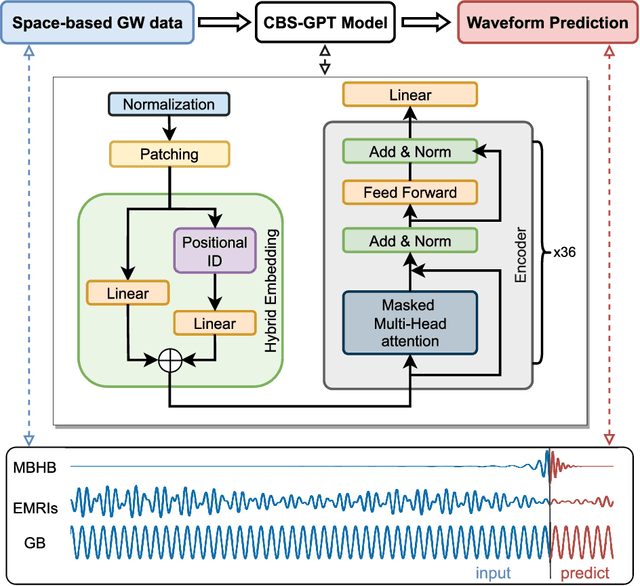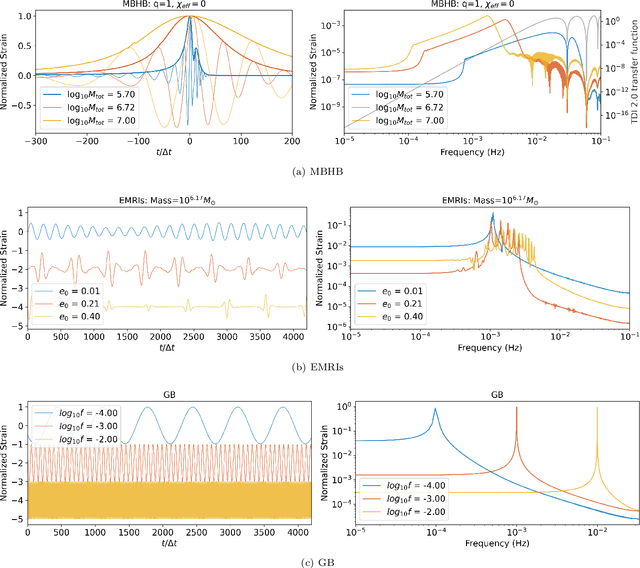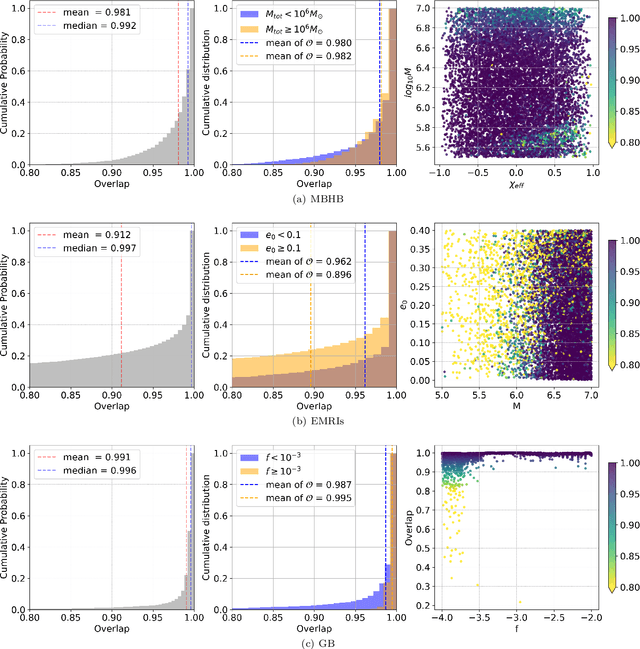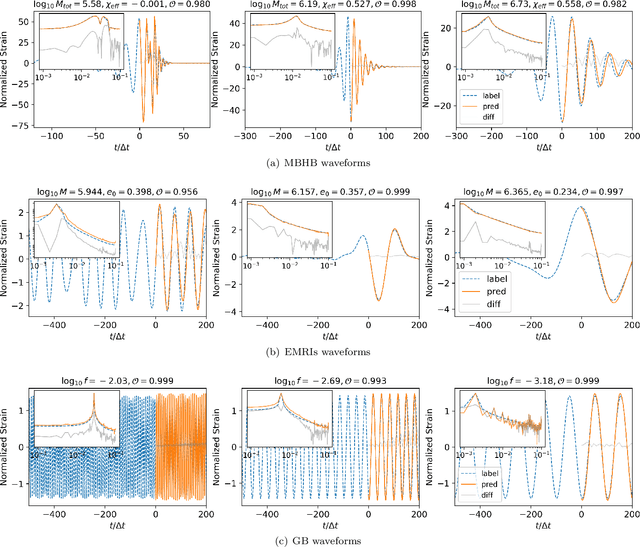Ruijun Shi
Compact Binary Systems Waveform Generation with Generative Pre-trained Transformer
Oct 31, 2023



Abstract:Space-based gravitational wave detection is one of the most anticipated gravitational wave (GW) detection projects in the next decade, which will detect abundant compact binary systems. However, the precise prediction of space GW waveforms remains unexplored. To solve the data processing difficulty in the increasing waveform complexity caused by detectors' response and second-generation time-delay interferometry (TDI 2.0), an interpretable pre-trained large model named CBS-GPT (Compact Binary Systems Waveform Generation with Generative Pre-trained Transformer) is proposed. For compact binary system waveforms, three models were trained to predict the waveforms of massive black hole binary (MBHB), extreme mass-ratio inspirals (EMRIs), and galactic binary (GB), achieving prediction accuracies of 98%, 91%, and 99%, respectively. The CBS-GPT model exhibits notable interpretability, with its hidden parameters effectively capturing the intricate information of waveforms, even with complex instrument response and a wide parameter range. Our research demonstrates the potential of large pre-trained models in gravitational wave data processing, opening up new opportunities for future tasks such as gap completion, GW signal detection, and signal noise reduction.
DECODE: DilatEd COnvolutional neural network for Detecting Extreme-mass-ratio inspirals
Aug 31, 2023Abstract:The detection of Extreme Mass Ratio Inspirals (EMRIs) is intricate due to their complex waveforms, extended duration, and low signal-to-noise ratio (SNR), making them more challenging to be identified compared to compact binary coalescences. While matched filtering-based techniques are known for their computational demands, existing deep learning-based methods primarily handle time-domain data and are often constrained by data duration and SNR. In addition, most existing work ignores time-delay interferometry (TDI) and applies the long-wavelength approximation in detector response calculations, thus limiting their ability to handle laser frequency noise. In this study, we introduce DECODE, an end-to-end model focusing on EMRI signal detection by sequence modeling in the frequency domain. Centered around a dilated causal convolutional neural network, trained on synthetic data considering TDI-1.5 detector response, DECODE can efficiently process a year's worth of multichannel TDI data with an SNR of around 50. We evaluate our model on 1-year data with accumulated SNR ranging from 50 to 120 and achieve a true positive rate of 96.3% at a false positive rate of 1%, keeping an inference time of less than 0.01 seconds. With the visualization of three showcased EMRI signals for interpretability and generalization, DECODE exhibits strong potential for future space-based gravitational wave data analyses.
 Add to Chrome
Add to Chrome Add to Firefox
Add to Firefox Add to Edge
Add to Edge